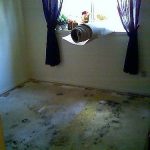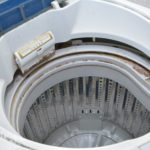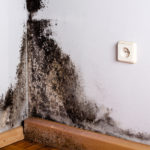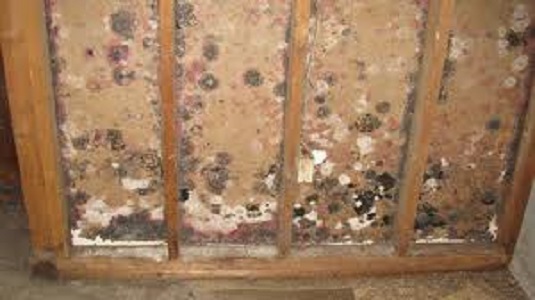
Mold is a natural substance that is always present both indoors and outdoors. There are many types of mold, and some of them are even beneficial. However, mold can be problematic if it is found growing inside of your residential or commercial property.
When mold forms indoors, it causes damage to the surfaces and materials it grows on. For example, mold that has grown on drywall is using the material as a food source, which results in eventual structural damage.
The mold spores can also spread to different areas, exposing inhabitants to the fungus. Mold exposure can cause people to suffer from negative health effects. Because of this, you will want any mold you find indoors to be removed as soon as possible.
Sometimes, though, cases of mold growth can be concealed. Albeit concerning, there are still ways to know if you have hidden mold in your home or business.
Continue reading to learn more about mold growth, mold hazards, signs of hidden mold, and how to approach mold removal.
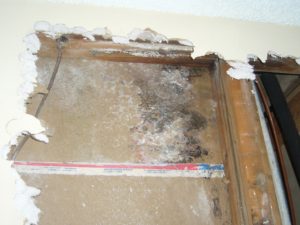
How Does Mold Grow Indoors?
Mold spores need two things to start growing mold colonies: a food source and a moisture source. Once the mold spores have encountered both, they will form colonies. As mold growth develops, the fungus will eat away at the material it is growing on, using it as its food source. The longer the mold goes unaddressed, the more damage the fungus will cause.
Furthermore, the development of mold will release mold spores into the air. These spores can spread through the property, traveling via the HVAC system. This makes it easier for more mold colonies to develop in new areas.
How Can Mold be Harmful?
In addition to the property damage mold can cause, mold exposure can be harmful. When people are exposed to mold, they can suffer from allergy-like symptoms, including but not limited to:
- Nasal congestion
- Coughing
- Wheezing
- Sneezing
- Sore throat
- Skin irritation
- Itchy eyes
With prolonged exposure to mold, these symptoms will only become worse. Additionally, mold can be more harmful to those individuals with asthma or other conditions with weaker immune systems. Knowing this, if you have the aforementioned symptoms, it can be a sign that you have hidden mold in your property.
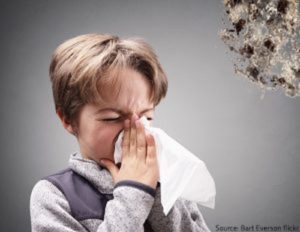
What are Signs of Hidden Mold?
When there is concealed mold in your home or business, you will likely have a difficult time figuring it out. The mold itself will not be visible and out in the open, but this does not mean it is impossible to figure out when you have hidden mold. Keep an eye out for the following signs:
Allergy-Like Health Effects
As aforementioned, exposure to mold can cause people to suffer from negative health effects. Some of the symptoms are symptoms of the common cold and fever, such as coughing and nasal congestion. Knowing this, if you or anyone else who inhabits your property experiences these symptoms but does not have a cold, then this can be a sign of mold exposure.
Musty Odors
While you may not be able to see the mold, you will likely be able to smell the fungus’ presence. Mold has a musty odor. That said, if you encounter such a smell, then you might have mold growing in a concealed area somewhere.
Changes in Wall Appearance
Because moisture is a key component for mold growth, the moisture involved can cause issues that can be signs of mold growth. For example, moisture can cause the wallpaper and paint on walls to peel, crack, or bubble. Similarly, wall stains and discoloration are another indication of water damage, which means mold has probably developed.
Worsened Asthma Issues
Not only can mold cause health problems, but it can worsen asthma for those individuals affected by it. People who are asthmatic are likely to experience worsened symptoms from inhaling dangerous mold spores.
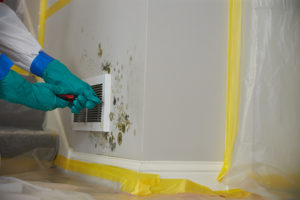
How Do I Approach Mold Removal?
If you suspect that your home or business is the site of hidden mold growth, you need to act immediately to prevent the damage from worsening. If you manage to find the hidden mold, then there are home remedies you can use for mold removal. However, the best thing to do in any situation regarding mold removal is to seek professional help.
With professional mold remediation services, certified technicians will locate and remove all cases of mold in your property, including concealed mold. They will work with outside sources to test for mold and then eradicate the fungus. Additionally, professionals will address the moisture source that triggered the mold growth and repair/restore affected materials and surfaces.
When you seek help from professional mold remediation specialists, not only will you ensure your safety, but your property will be restored to a clean, safe environment.
